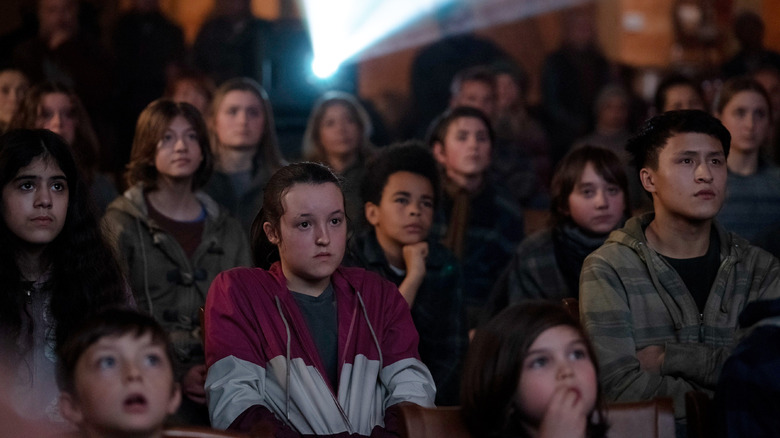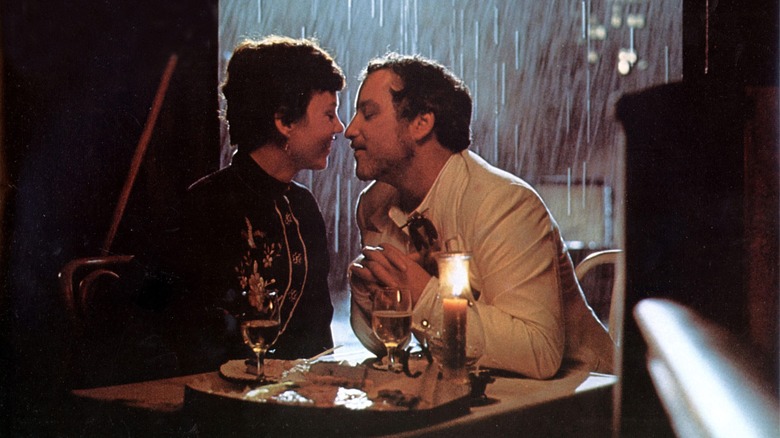Why The Last Of Us Creators Chose An Obscure Richard Dreyfuss Rom-Com For Jackson's Movie Night
This post contains spoilers for HBO's "The Last of Us."
There is no happy zombie story. No matter if it's a comedy, a romance or a musical, a zombie apocalypse destroys all chance and hope for a normal, let alone happy, existence. This is part of what makes the "The Last of Us" compelling, because you are seeing people desperately trying to cling onto their humanity, and their sense of community, even while fighting off mushroom zombies and hordes of violent humans.
Indeed, "The Last of Us," particularly the original video game, is a constant gut punch. At every chance, if there is a possibility of something good happening, the game immediately kicks it in the nuts and laughs at the very idea. It's why some of the best moments of the game are simply very small moments of relative tranquility, normalcy, and happiness.
The HBO show, however, takes that a step further. It's still a gut punch of a series that captures the bleak heart-wrenching pain of the games, but it also isn't afraid to let you have a moment of bittersweet victory every once in a while. We had it with the Bill and Frank episode, which gave us one of the finest hours of TV in years. We also get that in episode 6, "Kin," when Joel and Ellie make it to Jackson, a small community in Wyoming, where they find Joel's brother Tommy. The two see that the town is a rather well-functioning community equipped with everything from a school and a bar to electricity and even a movie theater.
It is here that Ellie gets to take presumably her first-ever trip to the cinema, where the 1977 Richard Dreyfuss romantic comedy "The Goodbye Girl" is showing. But why this specific and, relatively speaking, obscure film?
Finding hope in the apocalypse
In the original game, we learn that the people of Jackson are going to see a movie, but we don't know which one. It would've been easy to choose "Star Wars" or some other hugely popular film, like when "Reign of Fire" revealed the solitary piece of pop culture that survived the dragon apocalypse was "The Empire Strikes Back." Instead, we get a lesser-known Richard Dreyfuss movie.
On the latest episode of the official "The Last of Us" podcast, co-creator Craig Mazin said he wanted to show that movie because it wasn't just about a man and a woman falling in love, it is also about the woman's daughter growing to approve of her future step-father. Beyond that, the scene was hugely important for Mazin because of what watching not just any movie, but a rom-com — widely considered to be less of a spectacle genre and more of a comfort one — meant for the world of the show:
"I like the idea of movies as an additional signifier of how civilized this place was, because up until this point, the world revolves around ammunition, guns. I liked the idea that one of the signifiers that this town is functioning is that it is still interested in art, and the community gathering together to watch a movie."
Indeed, this is possibly the most hopeful moment in the entire series so far — a small but significant moment that shows that life can return to a sense of normalcy, even in the fungal-zombie apocalypse. The arts may not be an absolute necessity to survive like food and water, but they are evidence we are actually living and forming communities for more than simply convenience.
"The Last of Us" airs Sundays at 9/8c on HBO and HBO Max.

